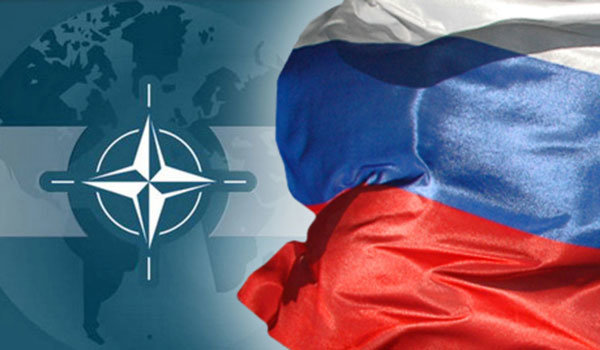Russia may counter NATO by deploying ballistic missiles near Romania: analyst

TEHRAN - A senior fellow at the Center for American Progress in Washington DC tells the Tehran Times that Russia may deploy short range ballistic missiles near the Romanian border as the U.S. activated a land-based missile defense station in Romania on May 12.
“Russia, of course, may take this opportunity as an excuse to boost ‘counter-measures’, maybe by placing short range ballistic missiles near the Romanian border,” Gautam Adhikari says.
NATO claims the interceptor station will help defend against the threat of short and medium-range ballistic missiles, particularly from the Middle East. However, Russia has said it is aimed at containing Russia and President Vladimir Putin has said Moscow will “neutralize emerging threats”.
Following is the full text of the interview:
Q: What is the purpose of the U.S. in deploying missile defense shield in Romania? Isn’t it an expansion of NATO to the East?
A: The U.S. has officially said making the missile defense system operational in Romania is to protect Europe from aggressive activity of “rogue states”, such as Iran. Russia sees it differently. It has called the system destabilizing and part of a plan to contain Russia militarily and politically. It may be worth noting that another such NATO installation will be operating in Poland early next year, as plans currently stand. The full system includes NATO’s command and control center in Germany as well as U.S. warships in the region which are equipped to launch interceptor missiles. The U.S. Deputy Defense Secretary, Robert Work, has said this strengthening of NATO’s missile defense system is not about Russia and that the U.S. would openly say so if it were meant to deter Russia. What it has said this time about the installation in Romania is that it is meant to defend against attacks from other players in the region.
Q: What will be the probable response of Russia to this move?
A: If it is officially described by the U.S. to be a defense system against Iran’s shorter-range ballistic missiles, then it clearly is that regardless of whether any other motive to guard against Russia exists or not. It is a defense shield to deter Iranian missiles and won’t be active unless Iran in the indeterminable future actually launches an attack on a European country or maybe Israel. As a defense system it will of course be a strategic deterrent to Iran. Notably, the NATO Secretary General, Jens Stoltenberg, has specifically
said that the installation in Romania is not technically capable of knocking out incoming Russian missiles and that Moscow, in his view, is fully aware of this.
“NATO… with a small addition of ground troops will not have the capacity to stop a major Russian attack.”
Q: What is the future step of NATO to get closer to Russian borders?
A: It has been reported that one idea being discussed is the deployment of small battalions of ground troops in the Baltic nations and Poland. NATO, however, with a small addition of ground troops will not have the capacity to stop a major Russian attack. These battalions, if they are deployed at all, may at best serve as hurdles in the way of a Russian offensive. Any larger scale deployment of troops plus armored brigades appears unlikely. Russia, of course, may take this opportunity as an excuse to boost ‘counter-measures’, maybe by placing shorter range ballistic missiles near the Romanian border.
Q: Don’t you think that NATO will become weak if Britain exits the EU?
A: If the UK exits from the EU, there might be several negative outcomes for the world in economic and strategic terms, in my careful opinion, despite the conviction of Brexit supporters in the UK that it’ll be good for Britain to restore a sovereignty which they see as lost in the EU. But whether it will weaken NATO is difficult to surmise at this point. Britain’s exit will free up Germany and France to explore further their tentative desire formally to build an EU military headquarters; that might help NATO or it might not. But any weakening of the EU system, which might happen with Britain’s exit, could incline each European nation to look after its specific economic and strategic interest. Russia will most likely welcome such a loosening of joint resolve that might impact NATO’s capacity for quick decision-making. But, as I said, it is difficult right now to pinpoint the fallout of Brexit, if it happens, on NATO. One impact could be a lowering of the level of Anglo-U.S. understanding on European strategic issues; that is probably one reason, among others, why President Obama has urged British voters to reject the call for Brexit.
[highlight]
